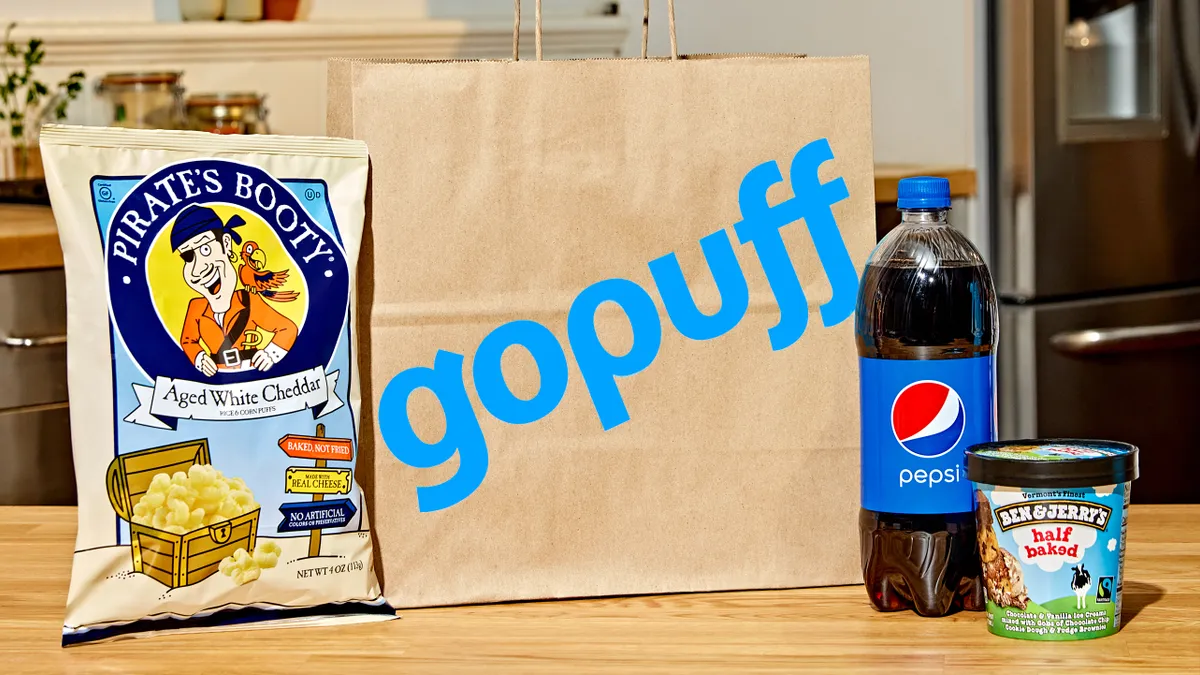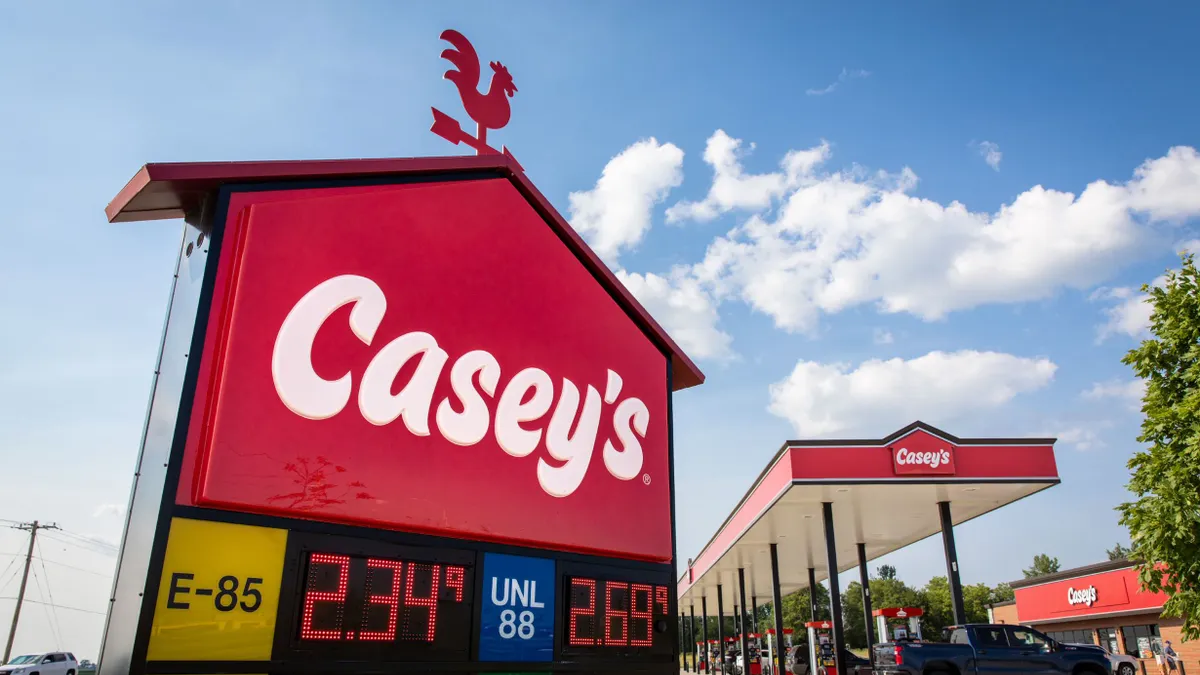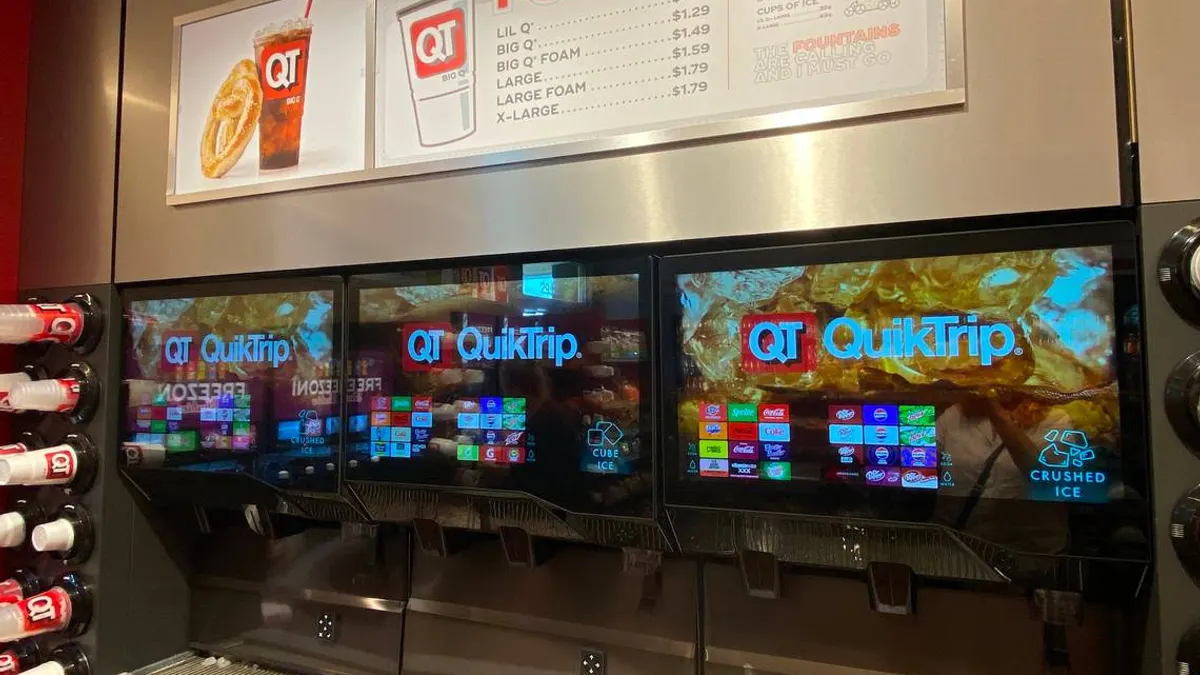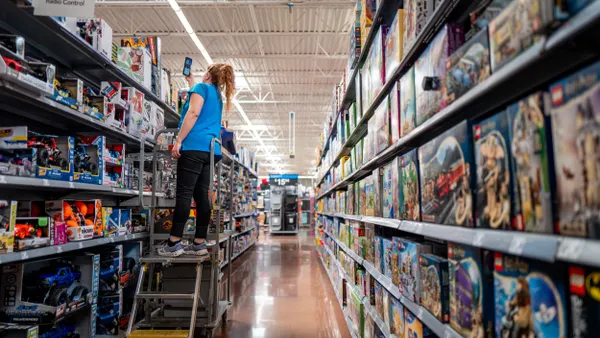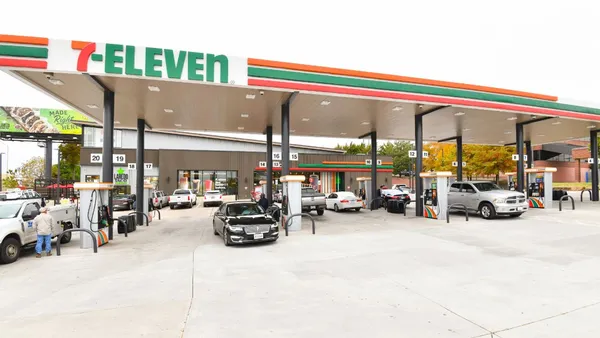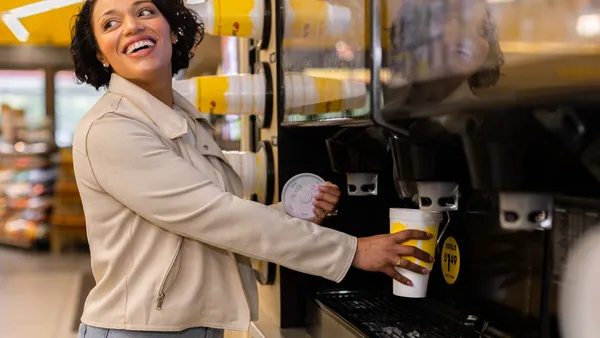Update: April 10, 2023: A Gopuff spokesperson has said that the company is appealing Massachusetts’ ruling on its alleged labor violations. “Gopuff is focused on giving people the chance to earn with us in whichever way makes the most sense for them, whether that’s as an independent contractor delivery partner or an employee in our local micro-fulfillment centers or headquarters,” the spokesperson said.
Dive Brief:
- Quick delivery company Gopuff faces citations totaling more than $6.2 million from the Massachusetts attorney general’s office over allegedly misclassifying employees and other labor violations, according to a Friday press release.
- The citations covered “misclassifying employees as independent contractors, failing to furnish suitable paystubs and failing to maintain an earned sick leave policy” across a combined 968 employees in the state.
- The citations come as Gopuff faces numerous obstacles, including rounds of layoffs and a driver shortage that has the company turning to Uber and Doordash to fulfill orders.
Dive Insight:
While Gopuff made an estimated $1 billion in revenue last year, paying over $6 million in fees plus rectifying the issues adds one more financial challenge for the delivery company.
“When employers misclassify their workers, they deprive them of basic employee protections and benefits, and create an unfair playing field for other law-abiding companies,” said Attorney General Andrea Joy Campbell.
In Massachusetts law, workers must be considered employees unless they fit under a specific set of criteria that would allow them to be classified as independent contractors. In addition to failing to prove the company’s drivers fit those criteria, Gopuff did not have a sick leave policy and its paystubs lacked information like hours worked, hourly rate and deductions/increases in their pay, the announcement from Massachusets Attorney General Andrea Joy Campbell noted.
Gopuff isn’t the only company facing misclassification lawsuits. In the fall, 7-Eleven successfully defended itself against a lawsuit brought in 2017 by franchise owners claiming they should be considered employees. Campbell on Tuesday submitted an amicus brief in support of the franchisees, saying that instead of asking whether the franchisees provided services to the company – one of Massachusetts’ criteria – it asked if the company provided services to the franchisee.
Delivery companies have been a target for worker misclassification charges in the past. Last fall, the Minnesota and District of Columbia attorneys sued Shipt, the Target-owned delivery service, for misclassifying its workers. Last week, two former drivers for e-grocer Weee sued the company for allegedly misclassifying more than 100 drivers in California as independent contractors.
As e-commerce and delivery both continue to pick up, quick delivery companies find themselves struggling to keep up. Gopuff has had to turn to Uber and DoorDash drivers to fulfill a fraction of its orders as its own driver ranks have fallen amid declining demand, The Financial Times recently reported.
Many of Gopuff’s startup peers, like Food Rocket, Buyk, Jokr, Fridge No More and 1520, have shuttered their U.S. operations or gone out of business entirely.



